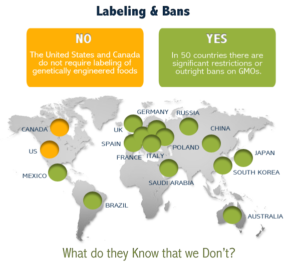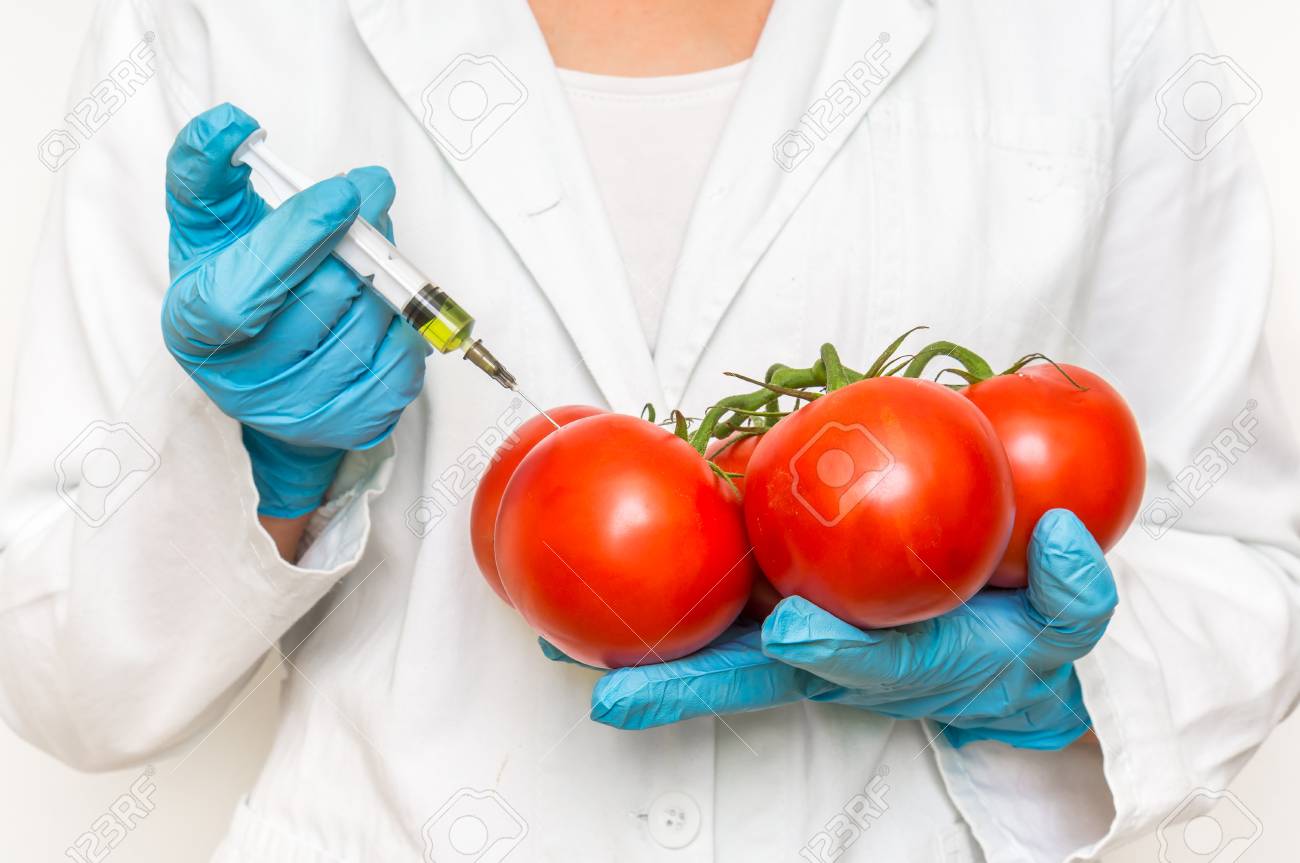GMO’s (Genetically Modified Organisms) began to hit grocery stores in 1994 and have been growing at an alarming rate ever since. The majority of research and development has been focused on genetically altering plants to do 1 of 2 things:
1) Produce their own internal pesticides to kill or deter insects. In short any insect that consumes the food will die.
2) Remain alive when repeatedly sprayed with weed killers that are manufactured by the same companies. Monsanto is a leading producer of genetically engineered (GE)seed and Roundup, a glyphosate-based herbicide.
Consumer, environmental and farmer organizations have raised objections not only regarding the GM food products, but also the safety of the chemicals applied to GM crops. Concerns include the potential effects on human health, contamination of non-GM crops due to cross pollination, and escalating toxicity from increasing use of the chemicals, in turn caused by increasing weed resistance. The manufacturer of the pesticide used on these crops has maintained the safety of its product while contradictory findings continue to emerge. As the debate continues regarding risks to human health, questions have arisen as to whether the Food and Drug Administration (“FDA”), tasked with regulating food safety, should act to assess the risks of these foods separately from non GM foods and in the interim, require labeling so that consumers are informed of whether GM ingredients are present and are empowered to make purchasing decisions accordingly.
The FDA regulates GM foods as part of the “coordinated framework” of federal agencies that also includes the Environmental Protection Agency (“EPA”) and the United States Department of Agriculture (“USDA”). The FDA policy (unchanged since 1992) places responsibility on the producer or manufacturer to assure the safety of the food, explicitly relying on the producer/manufacturer to do so: “Ultimately, it is the responsibility of the producer of a new food to evaluate the safety of the food and assure that the safety requirement of section 402(a)(1) of the act is met. So it is the company, not any independent scientific review, providing the research that is relied on to assert safety. FDA guidance to industry issued in 1997 covered voluntary “consultation procedures,” but still relied on the developer of the product to provide safety data. There is currently no regulatory scheme requiring GM food to be tested to see whether it is safe for humans to eat.
GMO’s were invented to allow us to feed more people but, now we have become a country who other countries do not want our food!

So what can YOU do? Vote with your $$. Read your labels and do your research. There are many organizations fighting for your rights to know what is in your food. Organic and non GMO food producers are fighting back by labeling their products. You may not know what is in the mainstream consumable food products but, you will know if it is organic and non GMO because those growers and manufacturers are answering the demands of many Americans who want and have the right to know.
This topic to so big it’s impossible to share all the info available today on GMO’s. You are encouraged to continue to educate yourself about GMO’s and get involved. After all …your health may depend on it.
Rest assured Arbonne’s 30 Days to Healthy Living products are non-GMO.
If you would like more information on GMO’s check out the documentary, “Seeds of Death”.
